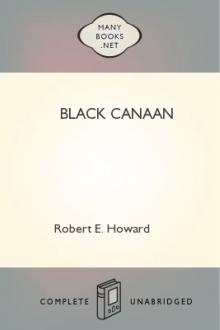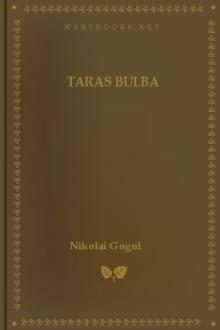Genre Short Story. Page - 13

er Carlisle assizes,some six weeks later. It was proved that he was the most desperaterogue in the North of England, for he had done three murders at theleast, and there were charges enough against him upon the sheet to havehanged him ten times over.
Well now, I could not pass over my boyhood without telling you aboutthis, which was the most important thing that happened to me. But Iwill go off upon no more side tracks; for when I think of all that iscoming, I can see very well that I shall have more than enough to dobefore I have finished. For when a man has only his own little privatetale to tell, it often takes him all his time; but when he gets mixed upin such great matters as I shall have to speak about, then it is hard onhim, if he has not been brought up to it, to get it all set down to hisliking. But my memory is as good as ever, thank God, and I shall try toget it all straight before I finish.
It was this business of the burglar that first made a friendship betweenJim Horscrof

ul poisonous flowers. The adders hissed at him as he went by, and the bright parrots flew screaming from branch to branch. Huge tortoises lay asleep upon the hot mud. The trees were full of apes and peacocks.
On and on he went, till he reached the outskirts of the wood, and there he saw an immense multitude of men toiling in the bed of a dried-up river. They swarmed up the crag like ants. They dug deep pits in the ground and went down into them. Some of them cleft the rocks with great axes; others grabbled in the sand.
They tore up the cactus by its roots, and trampled on the scarlet blossoms. They hurried about, calling to each other, and no man was idle.
From the darkness of a cavern Death and Avarice watched them, and Death said, 'I am weary; give me a third of them and let me go.' But Avarice shook her head. 'They are my servants,' she answered.
And Death said to her, 'What hast thou in thy hand?'
'I have three grains of corn,' she answered; 'what is that to thee?'

alk!"
"Here comes John with the blacksnake!" shouted someone, and a tremor ran through Tope Sorley's shivering body.
I pushed aside the butt of the ugly whip thrust eagerly into my hand.
"Tope," I said, "you've worked one of my father's farms for years. Has any Buckner ever treated you any way but square?"
"Nossuh," came faintly.
"Then what are you afraid of? Why don't you speak up? Something's going on in the swamps. You know, and I want you to tell us why the town niggers have all run away, why Ridge Jackson was killed, why the swamp niggers are acting so mysteriously."
"And what kind of devilment that cussed Saul Stark's cookin' up over on Tularoosa!" shouted one of the men.
Tope seemed to shrink into himself at the mention of Stark.
"I don't dast," he shuddered. "He'd put me in de swamp!"
"Who?" I demanded. "Stark? Is Stark a conjer man?"
Tope sank his head in his hands and did not answer. I laid my hand on his shoulder.
"Tope,"

you get off into the water."
It occurred that way.
The Crimson Candle
A MAN lying at the point of death called his wife to his bedside and said:
"I am about to leave you forever; give me, therefore, one last proof of your affection and fidelity, for, according to our holy religion, a married man seeking admittance at the gate of Heaven is required to swear that he has never defiled himself with an unworthy woman. In my desk you will find a crimson candle, which has been blessed by the High Priest and has a peculiar mystical significance. Swear to me that while it is in existence you will not remarry."
The Woman swore and the Man died. At the funeral the Woman stood at the head of the bier, holding a lighted crimson candle till it was wasted entirely away.
The Blotted Escutcheon and the Soiled Ermine
A BLOTTED Escutcheon, rising to a question of privilege, said:
"Mr. Speaker, I wish to hurl back an allegation and explain that the spot

shadows. As if there might be a fog. But no fog, however, thick, could hide the apple tree that grew close against the house.
But the tree was there ... shadowy, indistinct in the gray, with a few withered apples still clinging to its boughs, a few shriveled leaves reluctant to leave the parent branch.
The tree was there now. But it hadn't been when he first had looked. Mr. Chambers was sure of that.
* * * * *
And now he saw the faint outlines of his neighbor's house ... but those outlines were all wrong. They didn't jibe and fit together ... they were out of plumb. As if some giant hand had grasped the house and wrenched it out of true. Like the house he had seen across the street the night before, the house that had painfully righted itself when he thought of how it should look.
Perhaps if he thought of how his neighbor's house should look, it too might right itself. But Mr. Chambers was very weary. Too weary to think about the house.
He turned from the window and

legs and a little smile, and a little voice, and littleround-about ways. As long as I can remember him he was always goinglittle errands for people, and carrying little gossip. At this presenttime when he called me "Sophonisba!" he had a little old-fashionedlodging in that new neighbourhood of mine. I had not seen him for two orthree years, but I had heard that he still went out with a littleperspective-glass and stood on door-steps in Saint James's Street, to seethe nobility go to Court; and went in his little cloak and goloshesoutside Willis's rooms to see them go to Almack's; and caught thefrightfullest colds, and got himself trodden upon by coachmen andlinkmen, until he went home to his landlady a mass of bruises, and had tobe nursed for a month.
Jarber took off his little fur-collared cloak, and sat down opposite me,with his little cane and hat in his hand.
"Let us have no more Sophonisbaing, if you please, Jarber," I said."Call me Sarah. How do you do? I hope you are pr

"I understand, Captain Joyce," said the General, "that you have allowed a very important prisoner to slip through your fingers."
"I am sorry, sir."
"No doubt. But that will not mend matters. Did you ascertain anything about him before you lost him?"
"No, sir."
"How was that?"
"I could get nothing out of him, sir."
"Did you try?"
"Yes, sir; I did what I could."
"What did you do?"
"Well, sir, I threatened to use physical force."
"What did he say?"
"He said nothing."
"What was he like?"
"A tall man, sir. Rather a desperate character, I should think."
"Any way by which we could identify him?"
"A long black beard, sir. Grey eyes. And a nervous way of twitching his face."
"Well, Captain Joyce," said the General, in his stern, inflexible voice, "I cannot congratulate you upon your first exploit in the Egyptian army. You are aware that every English officer in this force is a picked man. I have the whole

All is still and sombre. At this hour the simple traffic of the thinly-peopled country is over, and nothing can be more solitary.
From this jungle, nevertheless, through which the mists of evening are already creeping, she sees a gigantic man approaching her.
In that poor and primitive country robbery is a crime unknown. She, therefore, has no fears for her pound of tea, and pint of gin, and sixteen shillings in silver which she is bringing home in her pocket. But there is something that would have frighted another woman about this man.
He is gaunt, sombre, bony, dirty, and dressed in a black suit which a beggar would hardly care to pick out of the dust.
This ill-looking man nodded to her as he stepped on the road.
"I don't know you," she said.
He nodded again.
"I never sid ye neyawheere," she exclaimed sternly.
"Fine evening, Mother Carke," he says, and holds his snuff-box toward her.
She widened the distance between them by a step or so, and said again sternly and pale,
"I hev nowt to say to thee, whoe'er thou beest."
"You know Laura Silver Bell?"
"That's a byneyam; the lass's neyam is Laura Lew," she answered, looking straight before her.
"One name's as good as

me back," he said, tenderly. "You will be cold."
"It is colder for my son," said the old woman, and wept afresh.
The sound of her sobs died away on his ears. The bed was warm, and his eyes heavy with sleep. He dozed fitfully, and then slept until a sudden wild cry from his wife awoke him with a start.
"The paw!" she cried wildly. "The monkey's paw!"
He started up in alarm. "Where? Where is it? What's the matter?"
She came stumbling across the room toward him. "I want it," she said, quietly. "You've not destroyed it?"
"It's in the parlour, on the bracket," he replied, marvelling. "Why?"
She cried and laughed together, and bending over, kissed his cheek.
"I only just thought of it," she said, hysterically. "Why didn't I think of it before? Why didn't you think of it?"
"Think of what?" he questioned.
"The other two wishes," she replied, rapidly.
"We've only had one."
"Was not that enough?" he demanded, fiercely.
"No," she

from theNorth. Every bond between them was broken; two kingdoms wereestablished under a single name--Russia--one under the Tatar yoke, theother under the same rule with Lithuanians. But actually they had norelation with one another; different laws, different customs,different aims, different bonds, and different activities gave themwholly different characters."
This same Prince Guedimin freed Kieff from the Tatar yoke. This cityhad been laid waste by the golden hordes of Ghengis Khan and hiddenfor a very long time from the Slavonic chronicler as behind animpenetrable curtain. A shrewd man, Guedimin appointed a Slavonicprince to rule over the city and permitted the inhabitants to practisetheir own faith, Greek Christianity. Prior to the Mongol invasion,which brought conflagration and ruin, and subjected Russia to atwo-century bondage, cutting her off from Europe, a state of chaosexisted and the separate tribes fought with one another constantly andfor the most petty reasons. Mutual depredatio